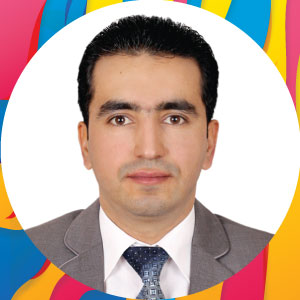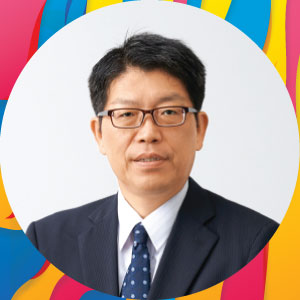Sustaining Volunteerism Culture for Society Empowerment
Presentation PDF File: Download PDF
More information: https://www.researchgate.net/publication/343761582_Sustaining_Volunteerism_Culture_for_Society_Empowerment
This webinar interrogates the role of volunteers in society empowerment to enable students with a broad view of volunteerism as a first action. This program aims to encourage volunteer activities in research, education, and social at the undergraduate and graduate students' level. At first sight, great needs for workforce exists in educational research and studies, while only a small percentage of students are volunteering their services. Consequently, many students miss the opportunity to give back to the community and excel in their academic and career assets in the long run. In the analysis, it exposed that students are the first beneficially in unique ways if they volunteer in research and education. It is also observed that research immensely impacts learning, and knowledge positively influences society. Therefore, by implication, volunteer activities in research and education, it will benefit young volunteers and communities. Besides, volunteer opportunities are readily available to students. Also, conducting volunteer activities have been impactful on the overall performance rating. A volunteer should train and learn best practices and behavior. It will promote educational research, student success, and improve livelihood in the community. In conclusion, this study reveals that volunteering in the field of education and research is critically important for students to participate in volunteer activities.
Date and Time
Location
Hosts
Registration
-
 Add Event to Calendar
Add Event to Calendar
Loading virtual attendance info...
- 1 Senbaru
- University of the Ryukyus
- Nishihara, Okinawa
- Japan 903-0213
- Building: Engineering 2nd Building
- Room Number: 518-2
- Click here for Map
- Contact Event Host
-
This event is sponsored by PESC Lab.
- Co-sponsored by University of the Ryukyus
- Survey: Fill out the survey
Speakers
 Asst. Prof. Danish M. (Dr. Eng., MBA, CEng., SMIEEE, MIET) of University of the Ryukyus
Asst. Prof. Danish M. (Dr. Eng., MBA, CEng., SMIEEE, MIET) of University of the Ryukyus
Sustaining Volunteerism Culture for Society Empowerment
The SEIES (https://www.ieee.org/seies) is a cross-boundary collaboration platform, for sustaining the globe by deployment of innovative technical and technological innovative approaches (CH10901- Fukuoka Section Jt. Chapter,RFID741/PE31). At this point, Dr. Danish will introduce SEIES and following by presentation of available oppurtunities with the SEIES.
Biography:
Assistant Professor Mir Sayed Shah Danish (Dr. Eng., MBA, CEng., SMIEEE, MIET) has been an engineering and technology expert and an academician for several years. He demonstrates a simple, in-depth style of narration of concepts, turning concepts into measurable endeavors and exploring interdisciplinary coverage in a systematic manner. Apart from being a scientific scholar, he brings together multidisciplinary skills and expertise (energy, environment, business, and management) providing integrated solutions. He is the author of several academic and technical textbooks, guidebooks, training manuals, and other books in English and Dari (Persian) Languages. These publications have enabled him to link industry with academia, and he has achieved recognition with several awards and expressions of appreciation. Since 2004, Dr. Danish has been involved in multidisciplinary engineering and technology by leading several projects in those fields while continuing as an active scholar and educator. He is an assistant professor at the University of the Ryukyus, Japan; founder and chair of the IEEE-Sustainable Energy and Intelligent Engineering Society (SEIES-PES & FRID joint chapter, Fukuoka Chapter); founder and facilitator of the Ryukyus IET On-Campus Society, and Ryukyus ACM Chapter; Founder of the Rahkaar Research and Education Organization; and founder and president of the Research and Education Promotion Association (REPA). Dr. Danish has worked with national and international organizations and companies as an urban electric power planner, team leader, technical advisor, department head, educational manager, and director. He is a chartered engineer, UK (CEng.), senior member of IEEE, member of IET (MIET), and holds membership in many other academic societies. He received his bachelor’s degree in electrical and electronic engineering (B.Sc.) in 2009 from Kabul University, Afghanistan); two master’s degrees, one in energy and electrical engineering (M.Sc.) in 2015 from the University of the Ryukyus, Japan; the other in business administration (MBA) in 2016 from the National Institute of Business Management, India); and a doctorate in sustainable energy (Ph.D.) in 2018 from the University of the Ryukyus. He chaired and has been a committee member of several conferences and symposiums and has more than 50 publications. His main research interest is sustainable energy (policy, economics, market, environment, and management), smart cities and housing, storage systems, voltage stability, and related areas.
Email:
Address:University of the Ryukyus , 1 Senbaru, Nishihara, Japan, 903-0213
 Prof. Senjyu T. of University of the Ryukyus
Prof. Senjyu T. of University of the Ryukyus
Sustaining Volunteerism Culture for Society Empowerment
Prof. Senjyu will discuss the recent innovations in technology, as well as encourage students to be along with these trends of technical and technological revolutions. Also, he will share his experience to advise students for being on the success path for the future.
Biography:
Professor Tomonobu Senjyu was born in Saga Prefecture, Japan, in 1963. He received the B.S. and M.S. degrees in electrical engineering from University of the Ryukyus, Nishihara, Japan, in 1986 and 1988, respectively; and the Ph.D. degree in electrical engineering from Nagoya University, Nagoya, Japan, in 1994. He is currently a Full Professor with the Department of Electrical and Electronics Engineering, University of the Ryukyus. He is an active scholar that runs and manage smoothly the industry by graduating theoretical and practical human resource. He has supervised tens of Ph.D. dissertations since 2004. His students are actively involved in the industry and academic fields throughout the world. He is leading the Power Energy System Control Laboratory (PESC) that demonstrates with recent technology and novel research outcomes. His laboratory publishes several peer-review journals each year. He has more than 500 peer-review publications in the high-ranking academic databases. His editorial contribution has been salient with many international journals. His nonstop support contributes to humanitarian and enhances academic affairs. Most of his students are from developing countries that pursue their studies under the Japan government scholarships. His research interests are in the areas of renewable energy, power system optimization and operation, power electronics, and advanced control of electrical machines.
Email:
Address:University of the Ryukyus, 1 Senbaru, Nishihara, Okinawa, Japan, 903-0213
Agenda
1. Introduction
2. Case studies and success history of volunteering activities
5. Advantages of volunteering
6. How to deal with barriers to volunteering
7. Volunteering opportunities for students
9. The conduct of a volunteer
10. The influence of third-party organizations
12. Volunteering educational research
13. Types of volunteers
14. Value of volunteerism in the future of research and education
15. Characteristics of great volunteers
16. Conclusion of the session and Q&A.
Zoom Link: https://us02web.zoom.us/j/89495072002?pwd=WHpJaWlWUGFVdFBPNWU5RW5KYnZRUT09
This webinar is open to worldwide audiences.
Media
| Volunteering for Society Empowerment | 289.96 KiB |

